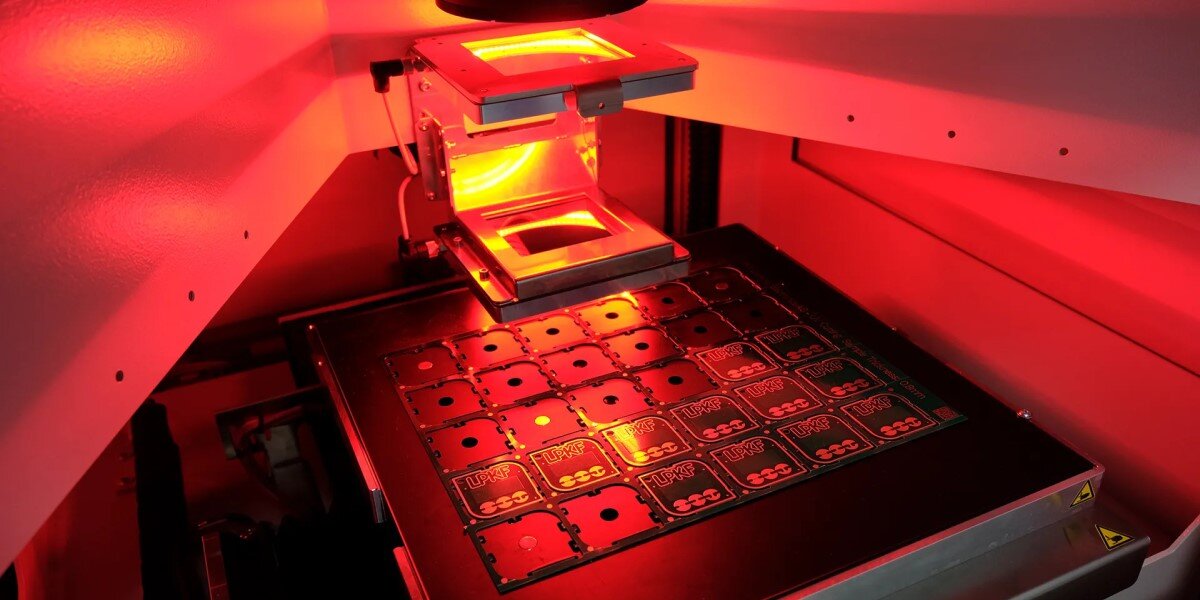
Making the decision to hand over the control of your electronics manufacturing to an external provider relies on a high degree of confidence and trust on the part of both you and your manufacturing partner.
There are a multitude of benefits that can come from joining forces with an electronics manufacturing services (EMS) partner: providing you with a boost of external resources, expertise and equipment; liberating you from the distractions of the day-to-day shop floor; and enabling you to focus your energies on other core areas of your business.
But choosing whether (or not) to outsource is also likely to bring with it a multitude of questions - and some understandable doubts. Outsourcing is a critical decision - and it's one that will rely on thorough research, close examination and the asking of some tough questions.
In this blog post we summarise four key areas that you'll want to scrutinise as you embark on your supplier selection process:
1) Their Quality Management Systems (QMS)
Can your prospective EMS partner demonstrate implementation of relevant National or International Quality Standards? And can they provide evidence of their current Certification Body Audit?
Do they hold regular management reviews that focus on meeting targets and objectives for continuous improvement? Do they carry out internal audits (of systems, processes, products etc) and how are these acted upon?
What's their average Internal and External PPM or reject percentage over the past twelve months? What's their average scrap percentage per build and their on-time-delivery percentage? Can they provide figures on the number of open customer concerns month on month and their response time?
What's their process for generating certificates of conformance or analysis? Are certificates provided on each batch? Do they operate an effective calibration system with relevant equipment and audit plans? How do they manage customer, supplier and internal complaints? What root cause techniques do they use and how can they demonstrate this?
And finally, what's the general condition of their manufacturing/assembly areas? Do they operate a 5S programme (or similar) - and what's their average score?
2) Their approach to New Product Introduction (NPI)
Does your prospective EMS partner use advanced Product Quality Planning (APQP), or an equivalent, as part of their NPI process? And if they don't, what's their alternative?
What's their process for obtaining sub-supplier approvals in relation to NPI? Do they provide a final sign-off document that includes failure modes and effects analysis (FMEAs), quality plans, data and specifications? And do they conduct process verification to ensure process control prior to serial production?
Is process documentation available at each station and area within the production line? Are there start up instructions and process sign-offs (check sheets, details etc) for production runs? Are there Control Plans and process flows in place on the production line? Who ultimately signs off an NPI prior to the product or machine shipping out to the customer?
What key process controls do they have in place i.e. statistical process control (SPC) charts, and do they operate fail-safe systems to ensure products are produced correctly? Do they have defined process performance monitors in place - and are they transparent?
3) Their supplier control processes
Can they provide you with an up-to-date approved supplier list? What's their process for supplier selection and how do they monitor performance? How often do they visit and audit their suppliers and how do they manage, monitor and track supplier concerns? What's their strategy for managing purchase orders to ensure only approved vendors are used?
Do they operate a goods inwards inspection system: including inspection check sheets, sampling plans, results, measurement test facilities, calibration of facilities, Certificates of Analysis (CoAs) and Certificates of Conformance (CoCs)?
What's their strategy for rejecting products that don't meet their requirements? Do they run a first-in, first-out (FIFO) system that ensures full traceability through to the finished product?
Do they clearly identify and segregate Non-Conforming Material (NCM) - from approved parts? What's their process for logging and reviewing all current NCM - and what internal format do they use?
Do they have adequate inspection facilities (i.e. x-ray for component inspection) to demonstrate product control and to mitigate the risk against counterfeit components entering the supply chain?
And finally, are their material handling methods sufficient to prevent damage and contamination?
4) Their approach to strategic/risk management
Do they have a business continuity plan in the event of a natural disaster, industrial action, fire etc?
And do they operate a review policy to ensure that any gaps in supply are plugged and maintained via additional shifts, the use of alternative locations, extra tooling etc?
Unfortunately, saying they have a Disaster Recovery Plan in place is not really good enough, you are going to want to see evidence that it has been documented. And you will also want to ensure that the plan is reviewed on an on-going basis to ensure it evolves as their business grows so that it remains relevant and fit for purpose.
For instance, do they have a risk assessment analysis? What emergency procedures are in place to deal with the immediate fallout of a disaster? What sort of measures do they have in place to re-ignite the supply chain should unforeseen disruption occur? How will they ensure their staff retain the crucial engineering and manufacturing skills required to build client products? Do they have access to multiple manufacturing facilities and what level of IT support do they have in place?
In addition to the huge body of evidence that your prospective EMS partner will need to be able to provide, it's also going to be just as crucial to determine that they're the right 'personality fit' for your company.
They will need to be able to demonstrate that they have the right combination of skills and experience to enable your business to grow. And just as importantly, that they've got a genuine interest in who you are as a company and what it is that you're looking to achieve.
By combining exhaustive research with a healthy chunk of your own gut instinct, you can cover all the bases to ensure your supplier-selection process reaps a positive outcome and a long-lasting partnership.



